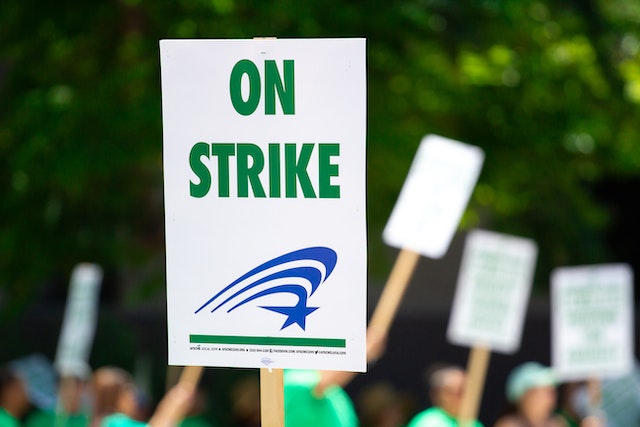In a move that could potentially reshape the dynamics of the entertainment industry, striking writers have shifted their focus from picket lines to antitrust battles, aiming their legal cannons at none other than media behemoths Disney, Amazon, and Netflix. This clash between the creative workforce and streaming giants marks a pivotal moment that could reshape the landscape of content creation, distribution, and the very future of streaming services.
The Striking Writers’ Standpoint
At the heart of the matter lies the contention that the creative backbone of these media giants – the writers – have not been given their fair share of the immense profits these companies generate. The writers argue that while the streaming industry has boomed, leading to skyrocketing revenues for the streaming platforms, they have been left with a shrinking piece of the pie.
This battle isn’t just about pay, but also about creative autonomy and credit. Striking writers argue that the increased demands of rapid content production have led to compromised artistic integrity and diminished recognition for their work. They contend that the creative process is suffering due to the unrelenting pace of production, impacting the quality of content delivered to audiences worldwide.
Antitrust Allegations: Dissecting the Claims
The writers’ antitrust claims center around allegations of monopolistic behavior exhibited by Disney, Amazon, and Netflix. It’s argued that these industry giants have managed to gain an excessive amount of power and control over the market, suppressing competition and limiting the choices available to consumers. This stifling of competition is said to have led to an environment where the interests of the writers – the very foundation of storytelling – are sidelined in favor of corporate profit margins.
The Ripple Effect: Industry and Creativity
Should the striking writers succeed in their antitrust endeavors, the ripple effect could be substantial. A victory would likely lead to a more equitable distribution of profits and recognition within the industry. This, in turn, could translate to better compensation, improved working conditions, and a renewed focus on the art of storytelling rather than simply churning out content for profit’s sake.
Additionally, the antitrust battle could encourage a shift in the streaming landscape. Smaller players, independent creators, and innovative start-ups might find it easier to enter the market and offer fresh, diverse, and captivating content. This could herald a new era of creativity, where the underrepresented voices of writers finally get the chance to shine.
Final Thoughts
The clash between striking writers and entertainment giants Disney, Amazon, and Netflix is a testament to the changing dynamics of the media landscape. It underscores the significance of fair compensation, creative autonomy, and the balance between profit and artistic integrity. As this antitrust battle unfolds, its outcome could set a precedent that reverberates throughout the entertainment industry, shaping the future of streaming and content creation for years to come.












